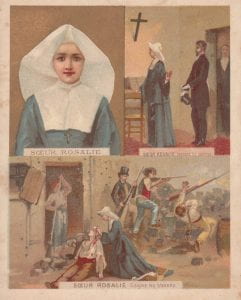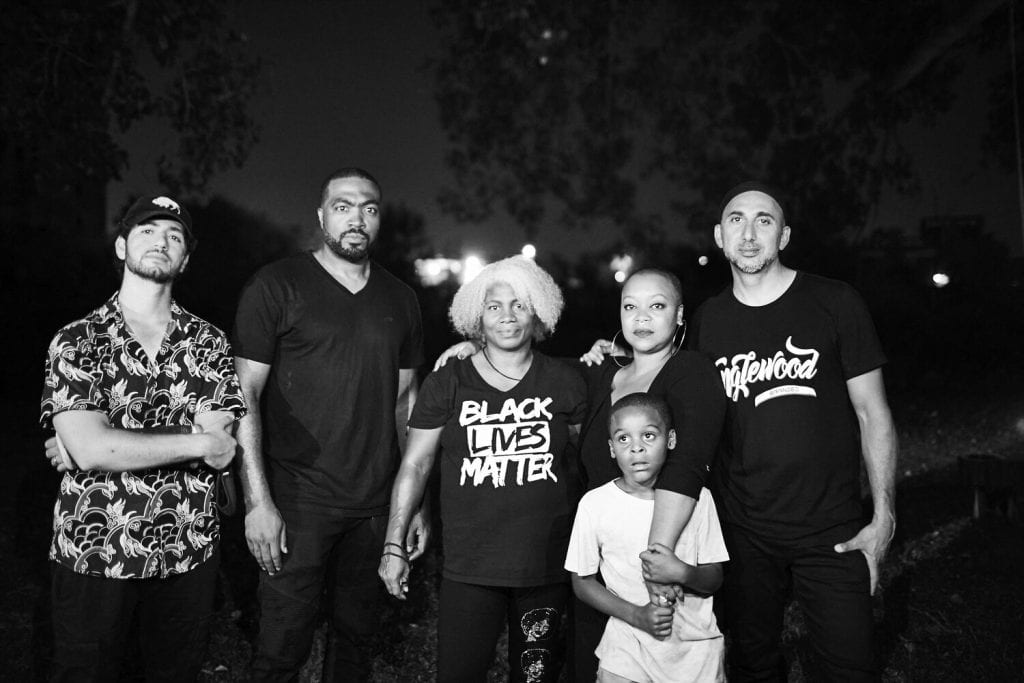 Whether studying historical trends or contemporary issues there are recurring tensions in the lives of religious and spiritual people that become apparent. Those who study such concerns can experience this in their own lives as well. One such tension is often identified with a “conservative” versus “liberal” or “traditionalist” versus “modernist” worldview. This is a tension between emphasizing individual beliefs and spiritual practices as opposed to service to others or social change. Such binaries can contribute to academic study or understanding, and people may find themselves drawn clearly towards one side of the spectrum, especially in times of high polarization. However, life experience often reveals the need for a balance to our approach, as what may seem relevant during one stage of life may seem completely irrelevant during another.
Whether studying historical trends or contemporary issues there are recurring tensions in the lives of religious and spiritual people that become apparent. Those who study such concerns can experience this in their own lives as well. One such tension is often identified with a “conservative” versus “liberal” or “traditionalist” versus “modernist” worldview. This is a tension between emphasizing individual beliefs and spiritual practices as opposed to service to others or social change. Such binaries can contribute to academic study or understanding, and people may find themselves drawn clearly towards one side of the spectrum, especially in times of high polarization. However, life experience often reveals the need for a balance to our approach, as what may seem relevant during one stage of life may seem completely irrelevant during another.
When Saints Vincent de Paul and Louise de Marillac founded the Daughters of Charity in seventeenth-century France, the dominant view was that an ideal environment for a young woman’s spiritual flourishing was the cloistered life of a convent sheltered from the negative influences of mainstream public life. The vision for the Daughters was a different one, however. Vincent and Louise believed that direct service to the most vulnerable and marginalized in society, the sick and the poor, was an ideal way to encounter God. Yet, this vision was in no way one that abandoned or denigrated spiritual practices or religious devotion.
February 7 marks the feast day of one of the most famous Daughters of Charity, Blessed Rosalie Rendu. Rendu (1786-1856) lived during one of the most volatile times in French history—a post-Revolutionary period marked by violent conflict and the oppression of different ideologies and social groups, privileged and poor, religious and secular. Her life was a model of commitment to serving those in need during such times of upheaval. She was known to emphasize the importance of one’s attitude towards others as much as the practical aid being offered. In addition, she was known for her religious devotion and for finding that strength in her work. A contemporary quoted her as saying, “Never do I make my meditation so well as I do on the street.”1
Today we face challenges similar to those faced by Vincentian figures like Rosalie Rendu. What is the relationship between communal service and our individual spiritual lives? How do we respond to systemic injustice, to human suffering and need, to societal polarization, conflict and even violence? How do we stay connected to God in the face of such difficult realities? What is our relationship with God and with those on the margins?
The Vincentian Mission is a living legacy. Its key historical figures provide us with inspiration and values that guide our way. In determining how to answer the challenges of today and tomorrow our knowledge of Vincentian history asks compelling questions of us, as much as it may provide us answers.
1 Louise Sullivan, D.C., Sister Rosalie Rendu: A Daughter of Charity on Fire with Love for the Poor (Chicago: Vincentian Studies Institute, 2006), p. 115. Available at: https://via.library.depaul.edu/vincentian_ebooks/5/ Sometimes quoted as “Never have I prayed so well as in the streets.” See Armand de Melun, Vie de la sœur Rosalie, 218.
Reflection by: Abdul-Malik Ryan, Muslim Chaplain and Assistant Director of Religious Diversity and Pastoral Care
The Division of Mission and Ministry and UMMA, the Muslim student group at DePaul, invite the entire DePaul community to join us in our annual Fast a Thon on February 11. All those willing and able are encouraged to experience fasting as a form of worship. We will gather at sunset to reflect upon the experience and upon a number of compelling questions.
To register for the Fast a Thon, go to: https://www.eventbrite.com/e/2021depaul-umma-fast-a-thon-tickets-138690459899
In addition to speakers focusing on the practice of fasting in different faith traditions, we will hear from DePaul alum, MacArthur “Genius Grant” fellow, 2018 Opus Prize Winner, and internationally celebrated activist Rami Nashashibi. He will discuss the challenges of today, his new musical project focused on social justice activism and healing, “This Love Thing,” and practical activism around the issue of police violence.
Find out more about “This Love Thing” at: thislovething.com. For more about Rami Nashashibi’s work as executive director of the Inner City Muslim Action Network (IMAN), see: https://www.imancentral.org/.
